Cliff Eidelman, the man who composed the score for Star Trek VI: The Undiscovered Country, fondly recalls his experience working on the final Star Trek film to star the entire original cast. We sat down with the composer who discussed his thematic choices for the score, his approach to publishing the original soundtrack, and how he worked with Nicholas Meyer.
2016 has been a banner year for Star Trek anniversary celebrations, with the debut of the franchise 50 years ago the most notable. As the calendar prepares to turn for the new year, there is one more still remaining as Star Trek VI: The Undiscovered Country celebrates its silver anniversary on December 6.
Reminiscing as if it were yesterday, rather than 25 years ago, Cliff Eidelman picked up the phone with TrekMovie to discuss his scoring Star Trek VI: The Undiscovered Country, collaborating with director Nicholas Meyer and watching Leonard Nimoy smile during one of his scoring sessions.
Emerging as a film composer at the ripe age of 22, Eidelman has scored 30 feature films and HBO movies over his professional 29-year musical journey. Throughout his career, Eidelman has demonstrated the ability to produce dramatic epic scores or light comedy compositions, rising to the occasion for each specific film.
Eidelman was 26 years old when he was tapped to score the final cinematic journey of the original crew of the Enterprise, a fact that was not lost on him. After one meeting with Meyer, he produced the main title cue that was used in the actual film. Like a cadet attempting to impress Captain Kirk to earn an assignment on the Enterprise, Eidelman had to show Meyer, a director with a singular and specific vision, that he had the chops to accomplish the task.
TREKMOVIE: Do you remember how you came to score Star Trek VI?
Cliff Eidelman: I do. I had submitted a tape to the studio as well as to the director, Nicholas Meyer. My agent submitted work I had done from my first three or four movies. Through that I was able to get a meeting with Nick. I was trying to win the job, so at the meeting I offered to write a demo piece based on the script.
Based on our discussion, I went home that night and was inspired by the story of the film and came up with the “Main Title.” I said to Nick, ‘I have the Main Title for the film.’ ‘How do you have the Main Title, we haven’t even started filming it?’ he responded. It did become the “Main Title” for the film.
I knew I was high on their list, but the “Main Title” still did not win the film for me. I went back home and did a spotting session on the script, called him up and told him I thought I knew where all the music should start and stop. He said to send it over to him. I put my notes on the script, and he sent me back his notes as he meticulously went over what I wrote.
One other component that helped me get the job was that each composer sent in a submission. Ron Roose was the editor, and he and Nick were a team. Whatever tape Nick got, he gave a copy to Ron. They both came back with my tape as their number one choice. All those factors helped me secure the job.
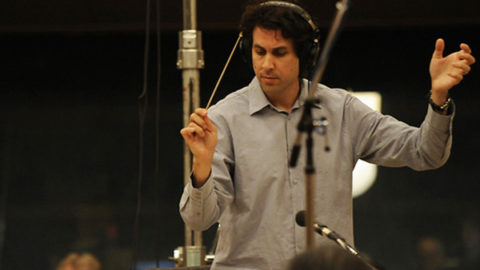
TM: Were you daunted by the task of following the likes of Jerry Goldsmith and James Horner?
CE: It was a Star Trek movie. How could you not want to do that? I think it helped that I was young and new to the industry. Meeting with the director inspired me, and put me at ease. Although there were fantastic scores to the previous movies, he told me I did not need to follow in those footsteps, especially since it was so much different than the previous five. It had a different feel to it. He gave me the latitude to explore new territory for the film, and created a lot of liberty for me. I was able to approach it the way that it felt right for me.
There is a risk of feeling the history that came before. In this particular situation, I didn’t feel that at all, partly because I was so young. I was just inspired to work 10 hours a day and create an original score.
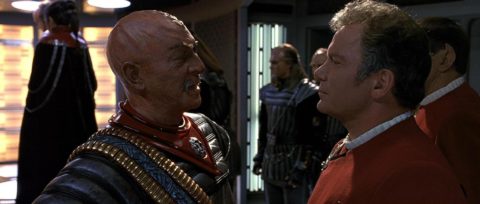
TM: Your Star Trek VI score was darker than any of the previous scores. Was that a conscious choice on your part or something that came out of your discussions with Nick Meyer?
CE: The film demanded it. It’s very possible to have written a score that sounded like one of the earlier films, but it would not have worked. This film had a darker and mysterious tone, plus all of the Shakespearean references. The Christopher Plummer performance was so strong, that it brought out things in me. Combine that with my meeting with Nick, who said you can be darker and mysterious and that I did not have to go to the previous scores. He was asking me to go someplace new, which really felt comfortable being able to go off in my own direction. Looking back, I think that was a good choice. Jerry Goldsmith is a fantastically gifted composer, no reason to do him, because you can’t do him better than he does him, so I preferred to just do me.
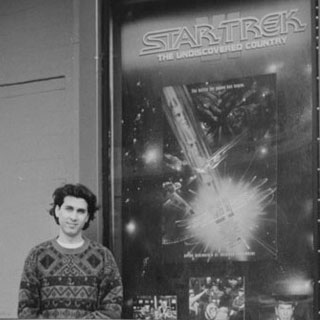
Cliff Eidelman next to Star Trek VI marquee on December 6, 1991
TM: Considering how different the score was from any of the previous Star Trek films, what made you decide to use the original cue at the end?
CE: I wanted to sign off the original crew musically. That was the most fun for me, as young as I was, signing off this crew. I knew it had to be a piece of music that culminated 25 years of history, but also felt fresh, as well as call back to Alexander Courage’s theme. It was a nice punctuation point from where it started to the end.
I got to make the conclusion with my theme, but it was also important to look back where it all started. I was able to make my full statement, with my music playing for two and a half minutes, and then say this is where it all started. Plus, right after I was able to go into an entire end-credit suite.
Back then, on opening weekend I went to see it in a big theater in Los Angeles. The line wrapped around the block and nobody knew who I was. I was in the theatre watching the film like everyone else. At the very end, the “Sign Off” happens and everyone goes crazy. Then the end credits started, which were six and a half minutes. By the end of the credits, three quarters of the theater were still there listening to it – that made me feel so good.
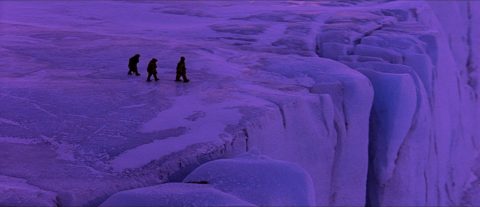
TM: Do you have a particular cue from the film that is your favorite?
CE:I would say there are a few that jump out at me. One, of course, is the “Main Title.” Others would be “Rura Penthe” and “Escape from Rura Penthe,” just because of all the exotic percussion I was able to bring in from around the world. Plus, I was able to let the orchestra soar at the ending of “Escape from Rura Penthe.” It starts off so lonely and desolate, and ultimately when you see the majesty of those cliffs, I had to open up the orchestra. “The Battle for Peace” was another, and of course, I really liked the “Sign Off.”
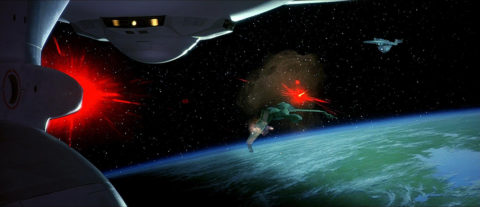
TM: How often did you go to the set while they were filming?
CE: I remember being on set during one of the Gorkon scenes where he had been shot. Also, I was there the day they had one of the Federation meetings, where they were talking about the mission at hand. I showed a few times for pick up shots. In filming a movie, everything is done in these small little bits. It was really fun to go to that set.
TM: Any anecdotes you remember from scoring the film?
CE: There was a really nice moment when I came off the podium and walked into the control room. Leonard Nimoy was sitting in there with a smile on his face. I could tell he was enjoying the music. I also enjoyed the performance from the players. One thing that really stood out was when one of the bass singers in the choir wanted clarity from me as to the correct pronunciation for one of the Klingon texts. He auditioned for me two different pronunciations for the Klingon translation of “To be or not to be.” It just sounded funny from my point of view as the conductor to hear this perfectly trained singer, singing in the language of Klingon.
Of all the moments, the greatest was when I got the phone call from Paramount telling me I got the job. That was the greatest moment for me.
TM: What stands out most to you about The Undiscovered Country as it celebrates its 25th anniversary?
CE: Star Trek VI dealt with the Cold War. I felt that was a very important story to tell. The way it was told was a very significant story of peace and trying to get along, past our differences and find common ground. In the end when the Klingons and Federation come together, they look at each other and realize they don’t have to be enemies.
TM: Star Trek fans are tough critics. However, your score is one of the favorites. Does that make you feel good knowing they responded to what you produced?
CE: Absolutely. I read a lot of the reviews. It means a great deal to me because it means I spoke to someone in a positive way. To be recognized by the fans in a positive way is an absolute treat. I soak it up.
I sometimes think to myself if I were to put together a Star Trek VI concert, would those fans show up and hear it? Maybe one day I will try to do something like that.
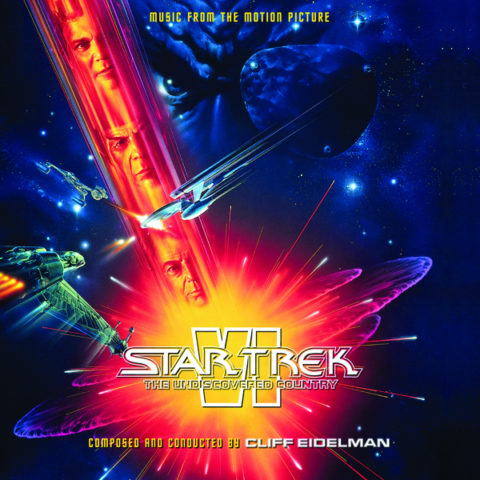
TM: What was your role for the original soundtrack release in 1991?
CE: I was given guidelines for 45 minutes max. I would have rather it be an hour, but could only do 45 minutes due to union reuse. I used as much of the score as I could. I choose the pieces in the order I thought would work best, which is the job of the producer, which I was. I decided on the order, combined cues, and edited the length; because when you are in a listening environment it’s a more effective build. You have to take in consideration that listeners of the soundtrack are not watching the film. If there is a lot of slow music, you don’t want to follow with more. You want to make it dynamic for the listener, and part of that is creating a new build, a structure that stands on its own as a soundtrack.
Taking it out of the film and placing it in the soundtrack environment is like building a symphony; now you have to engage the listener. I always like to try to follow somewhat the sequence of the story, so it tells the story. Very often, I would get very close to the sequence and change it a little bit. I would not put “End Credits” or “The Battle for Peace” at the beginning, that way you still get to experience the film, but not to the detriment of the listening experience.
TM: How do you decide what cues to include when you have a time limit?
CE: Let’s say there was a repeat that duplicates the same idea, I don’t really need that. That’s a variation, I like it, but I am already saying it in this piece in a more powerful way. I usually put all of my favorite and most important pieces in front of me first, look at what’s left and decide what needs to be included. After that, I start sequencing and put it together. There might be a 1:20 piece that cuts nicely into another piece and you can combine them.
TM: Was there anything you did not get to include on the original release?
CE: No. It would have been nice to put the “Trailer” on there, but that was covered in the “Main Title”, “The Battle for Peace” and “Escape from Rura Penthe.” So I didn’t feel too bad about it.
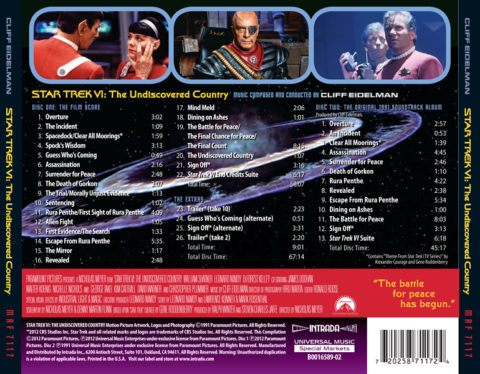
TM: Did you have any input on intrada’s 2012 expanded release of the soundtrack?
CE: I did have some involvement with that. I gave them the “Trailer”, for which I still had the reel-to-reel. I sent over all of the DATs (digital audio tape) that had all of the extra cues, so they were able to include them. They were also hoping to put in some of the demos, but they were long gone. It was nice being able to put it all out there. There is not a wasted note. I hope it always stays available.
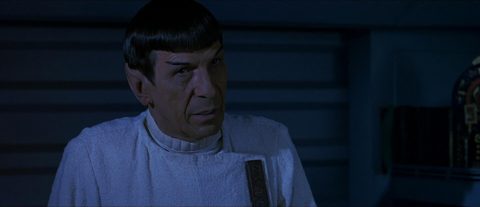
TM: Did you actually score the trailer music?
CE: I had a special session just for that, which is very unusual. It was a chance for me to see how the “Main Title” played with the orchestra. It had some of the “Main Title” and “The Battle for Peace” material in it, and also had what I would call the “Spock” theme. Overall, the “Trailer” had a mix of three or four themes. It was a great opportunity to try it out and see how everyone responded. Nick was there for the session, which was unusual to have the filmmakers come into be a part of the trailer session.
If composers had an opportunity to do the trailer, it would provide them a great opportunity to try things out. It’s a little different because you have to say everything in a short amount of time, pump up the energy more so, and excite the crowd in a minute and a half or less.
TM: What did Star Trek VI mean to you and your career?
CE: Pride and a sense of accomplishment having done that. I worked so extensively on it, it represents a time that I put as much into as I could. When I was finally done with it, I felt it was the best I could have done. I felt like I accomplished what I set out to do.
The truth is, on every film, I work as hard as I can. But there is something to be said working on Star Trek. It’s writing a space opera. I was even able to do some Klingon language in my score. By and large, it is an epic style film with an epic score. In the end, the music is an important part of the film. With other films, like romance, comedy and drama, music does not play the same role. It has to be understated; it’s there but you do not bring so much attention to it. Star Trek is not like that, so it’s really fun.
TM: Were you a Star Trek fan before scoring the film?
CE: When I was a kid I remember watching The Original Series on television. I would not call myself a huge fan, but remember enjoying it. I remembered being frightened of Spock because of the ears.
For me, my Star Trek experience was the film. It didn’t turn me into anything beyond that. I felt so fortunate to do that film; it was such a well-directed, written and acted film, it made me appreciate it all the more.
TM: Any last thoughts about your contribution to the Star Trek saga?
CE: I would say having been a part of the last film with the original cast gives me a sense of pride – to be a part of something that’s lasted this long. What, if anything, lasts 50 years? There is nothing like this, Star Trek is like a classical piece of music that continues onward. Whenever I do an interview, inevitably that score comes up as an important part of the interview.
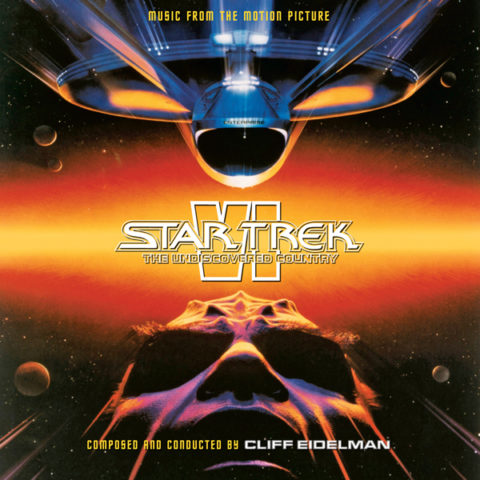
Check out Intrada’s website for the expanded 2012 Star Trek: The Undiscovered Country score. And, check out Cliff Eidelman’s discography on his website.


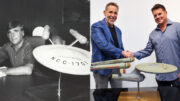
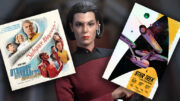
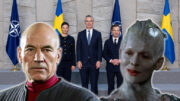
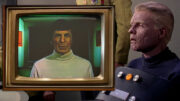
It’s hard to say which Star Trek movie has the best music but Star Trek VI is definitely one of the best.
This and First Contact are right up there! Generations is brilliant as well. 1991 to 1996 was a good period for Trek music!
We’re blessed to have received a franchise where literally EVERY score in the series is amazing. I personally still consider TMP to be tops, but there really is no going wrong with any choice.
He created a compelling, intense and haunting score. One of the best without question. Bravo!
You’re absolutely right! That opening theme completely sets the tone and is so haunting.
If you like that, you’ll love the inspiration from Holst’s Planets, from which Horner heavily borrowed from as well. In particular Eiedelman basically lifted the Firebird by Stravinsky for the opening theme. Don’t know why this isn’t discussed. While Eidleman’s talent at adapting the score from major classical masterpeices is to be applauded, there’s not a lot of “genius” here. Meyer had basically temped the score with Holst, and other classical recordings intending to license the music, but it proved to be too expensive. Eidleman merely adapted those compositions in a manner capable of copyright by Paramount. If you ask me, Stravinsky’s estate should have sued for copyright infringement.
Always loved Eidelman’s music for STVI. Great interview! What has be done more recently?
It still holds up as one of my favorite scores. It’s just so different than the others and I like how dark it gets in places and then some of the themes played by a horn or what sounds like a horn…good stuff. Part of the reason Trek VI is tied with another as my #1 favorite Trek film.
His score is great. It fits the tone and themes of ST:VI
For me, it’s right up there with James Horners score. Just misses out on top spot as best ST soundtrack IMO.
A fantastic score, love it.
I love this score. Thanks Cliff!
I also love this score very much and I once read, that he made the demos only with synthesizers. I would die to hear those demo versions. But as he stated in the interview they are long gone and lost :(
His Sign-Off was a *really* nice touch. Really appreciated it.
One of my memories of VI was the full trailer and the music. Back in the fall of ’91 there was a Trek movie marathon with the advertisement of a new trailer, not the teaser one with recycled scenes and fx. My friend and I sat in front and before V began, they unexpectedly played the trailer. It was supposed to play after the END of V.
The stereo sound effect of the Praxis sound wave and the new score was perfect and a departure from II-IV in that they recycled bits of Horner’s II score. The audience cheers, Kirk responds ‘Me?’ to the Order of meeting Gorkon. The BIG cheer came with Sulu as he declares ‘This is Capt Sulu, Starship Excelsior, we stand ready to assist you. That was chilling. Unfortunately, the fx weren’t quite finished as the Bird-of-Prey photon torpedo fx were sparkling white and not tinted red in the movie. Also, the shapeshifted Kirk/Martia phasered scene didn’t have that multi-crisping coolness we saw in the finished movie. But still, the idea of Kirk being phasered had us wondering..what? Kirk dies? At the end of V., the audience demanded to see the trailer again. ‘Show it, again! Show it, again! And the projectionist did!
Eidelman’s score contains the best rendition of Courage’s Trek Fanfare anywhere. The version in the trailer music has always been my favorite.
Excellent interview guys, thanks.
That’s a fantastic interview, and if you’re reading out there Mr. Edelman, thank you very much for turning “Trailer” over for release! I rewatched the trailer over countless times just for that cue, and it was amazing to have a rich quality version finally available on that special edition CD!
Amazing score. Thank you.
I’ve never liked this movie, but I have always LOVED Eidelman’s score! This was another great, in-depth interview! Thanks!
http://www.startrek.com/article/idws-john-byrne-doubleheader-out-wednesday
http://www.geekexchange.com/news/the-roddenberry-vault-actual-newly-released-footage-from-star-trek/
I really like Eidelman’s TUC score.